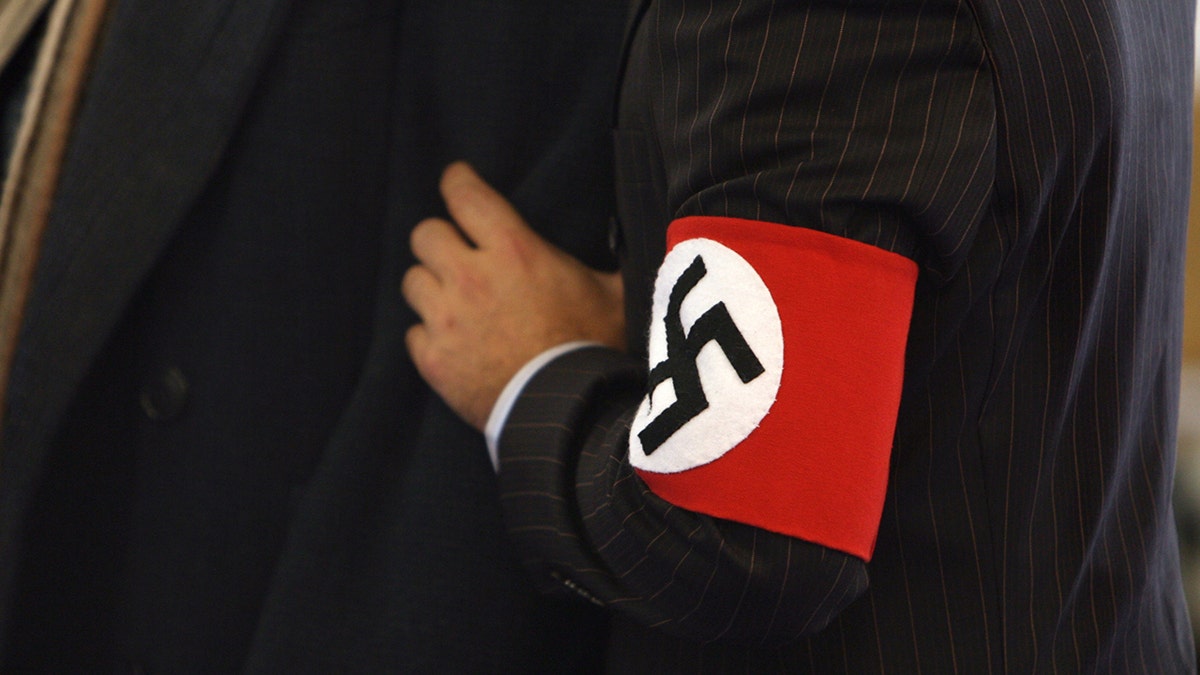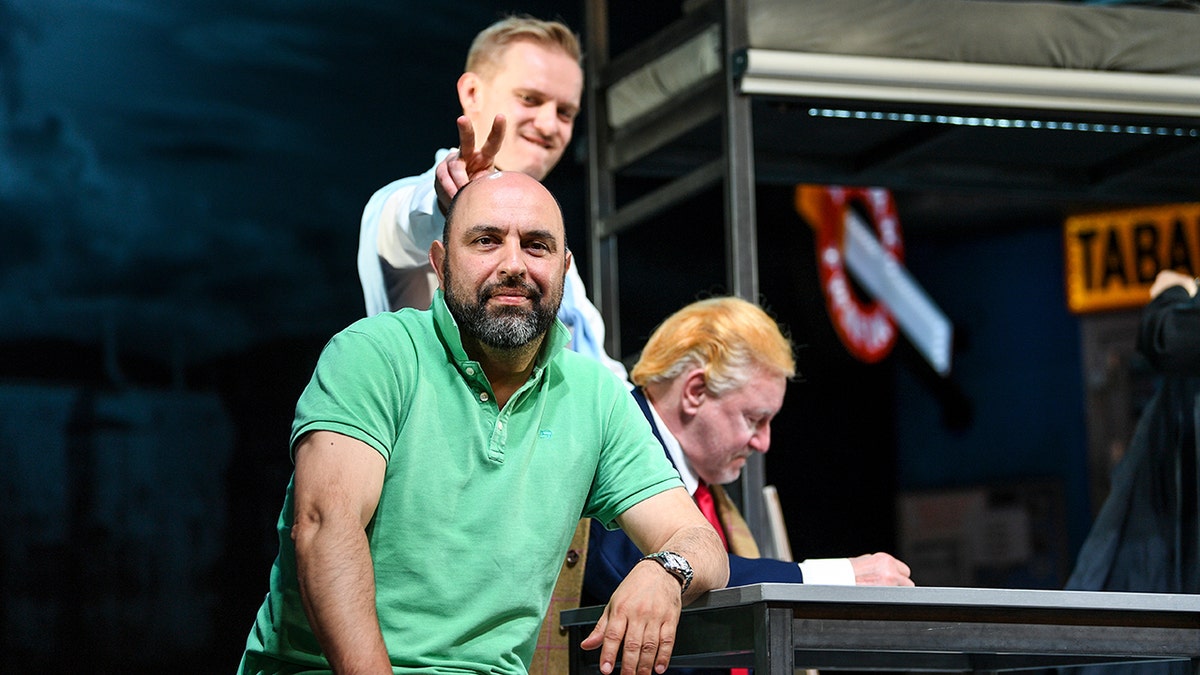
A theater in Germany will have some patrons wearing a swastika armband while others wear the Jewish Star of David for a satirical production about Adolf Hitler's youth. (Reuters)
A German theater premiering a satirical play about Adolf Hitler’s youth on Friday will proceed with its plans to give theatergoers free admittance if they wear a swastika armband, while those who pay for admittance will be asked to wear a Jewish Star of David.
The Konstanz Theater’s production of George Tabori’s “Mein Kampf,” which opens Friday night for a month-long run, sparked widespread backlash and legal complaints for its plans to have audience members wear the armbands used by Hitler’s Nazi regime.

The Konstanz Theater's production of George Tabori's "Mein Kampf" opens Friday night for a monthlong run (Felix Kaestle/dpa via AP)
Theater manager Christoph Nix told reporters the point of the use of the armbands is to show how easily corruptible people are, and provide a dialogue about racism.
“The theater is the only place where such a discussion can take place immediately,” he told dpa news agency.
"The theater is the only place where such a discussion can take place immediately."
Germany has prohibited the display of the swastika, though there are exceptions such as when it’s clearly part of an anti-Nazi protest, or where artistic freedom is involved.
Complaints flooded into the Konstanz Theater in the weeks leading to Friday night’s premiere – which falls on Hitler’s birthday, while others have called for a boycott of the production. Multiple people filed legal complaints with the city’s prosecutors, who decided earlier this week that the concept fell under the expression of artistic freedom.
Nix said about four dozen people have already signed up to wear the swastika, meaning there will only be a handful at any of the play’s 14 performances.
The theater said it is planning strict security checks at the entrance, and as people exit to ensure the armbands are returned.

Though named after Hitler's infamous anti-Semitic manifesto, the play tells a fictional story of how a young Hitler is befriended by a Jewish man who puts him on his political path. (Felix Kaestle/dpa via AP)
Though named after Hitler’s infamous anti-Semitic manifesto, Tabori’s “Mein Kampf” tells a fictional story of how a young Hitler is befriended by a Jewish man in Vienna who takes pity on him following a futile pursuit of a career as an artist.
In the story, the Jewish man puts Hitler on his political path and helps him with his hairstyle.
Tabori was born to a Jewish family in Budapest in 1914 and fled the Nazis. His father and other family members perished in the Auschwitz death camp.
He died in 2007 and was known for his avant-garde works that confronted anti-Semitism. “Mein Kampf” has been performed many times before, and was made into a German-language film a decade ago.
The Associated Press contributed to this report.




















